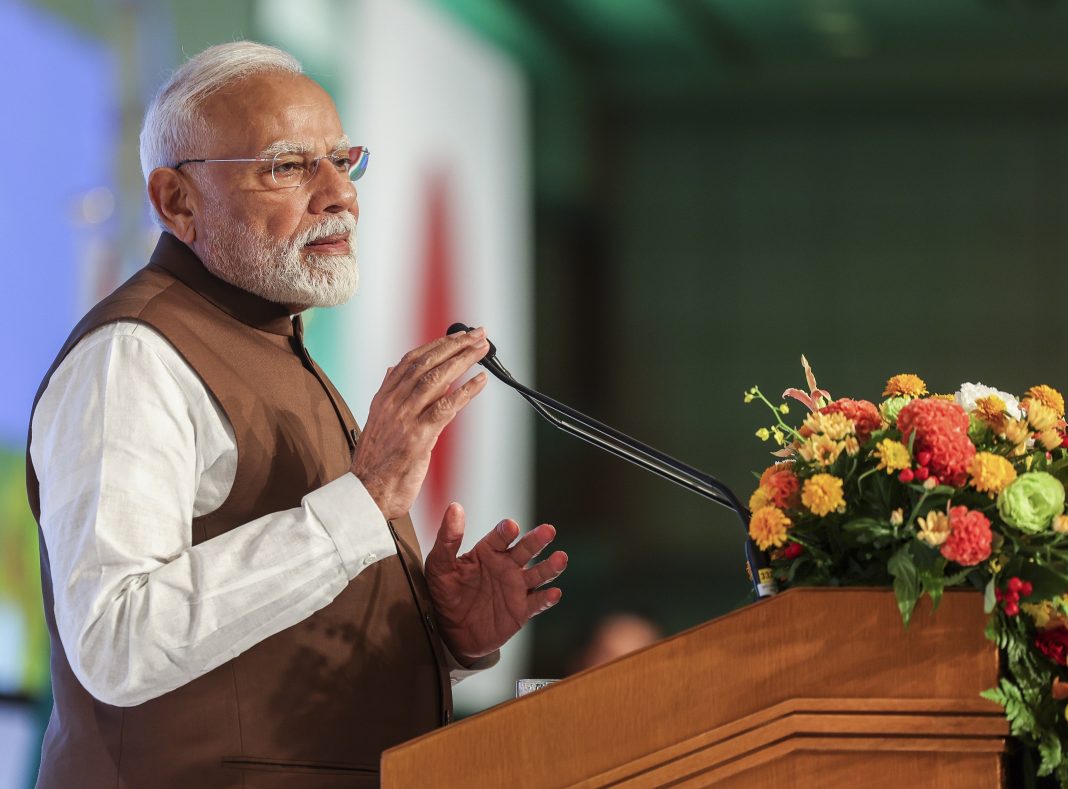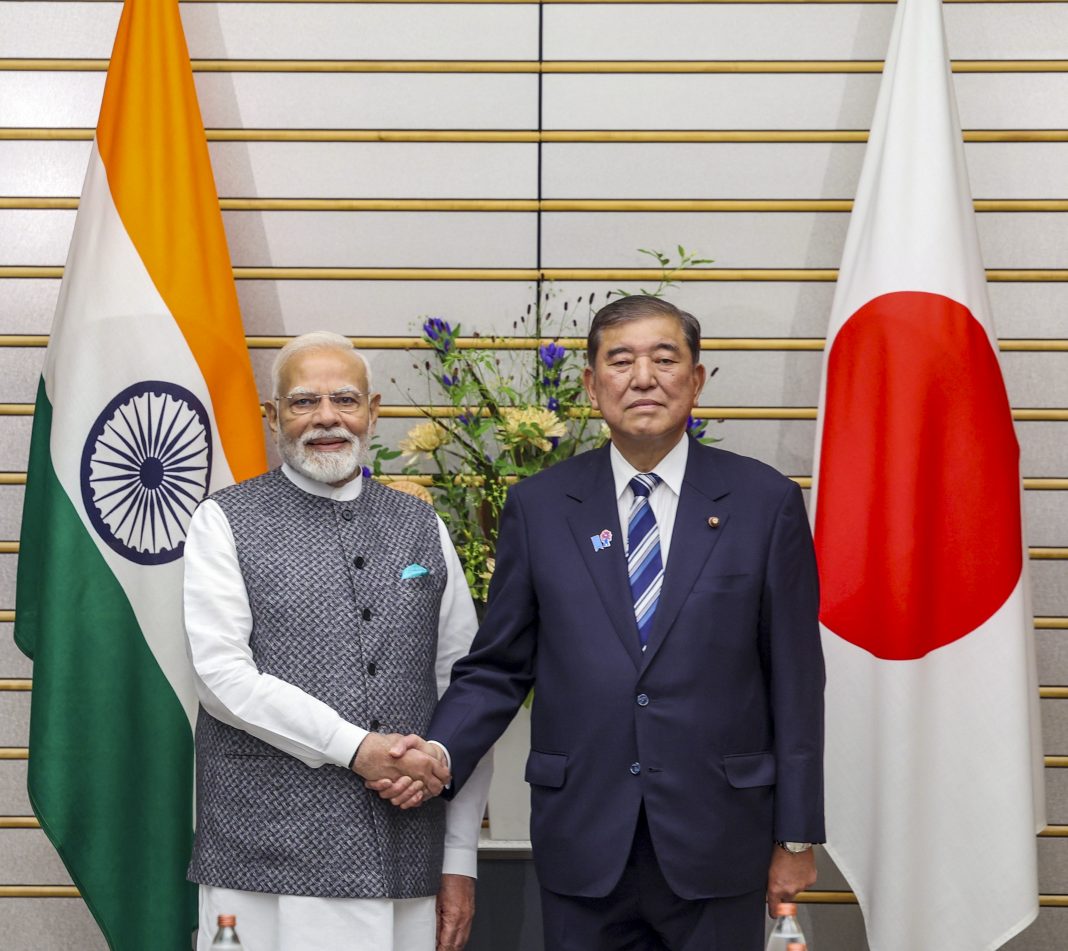Tokyo, Aug 29: India is the fastest growing major economy and its political and economic stability as well as transparency in policies have made it an attractive investment destination, especially in areas of green energy, manufacturing and technology, Prime Minister Narendra Modi said on Friday.
Modi’s remarks at a business forum shortly after landing in Tokyo on a two-day trip came amid fears of adverse impact of Washington’s 50 per tariffs against India on the country’s economy.
In his address, Modi said Japan’s technology and India’s talent together can lead the technology revolution of this century and can contribute significantly to Asia’s stability, growth and prosperity.
The prime minister said Japanese companies have invested more than USD 40 billion in India, including USD 13 billion in the past two years as he highlighted the country’s remarkable changes in the last 11 years.
“Today, we have political and economic stability, and clear and predictable policies. India is now the fastest-growing major economy in the world, and very soon, it will become the world’s third-largest economy,” he said.
“India is contributing to 18 per cent of global growth. The country’s capital markets are giving good returns, and we have a strong banking sector. Inflation and interest rates are low, and foreign exchange reserves stand at around USD 700 billion,” he said at the India-Japan Economic Forum.
Modi identified manufacturing, technology and innovation, green energy, next-generation infrastructure, and skill development and people-to-people ties as the main focus of cooperation between the two sides.
“India and Japan’s partnership is strategic and smart. Powered by economic logic, we have turned shared interests into shared prosperity,” he said.
Describing Japan as a “tech powerhouse” and India as a “talent powerhouse”, Modi said the two countries can lead the technology revolution of this century, especially in areas of artificial intelligence, semiconductors, quantum computing, biotech and space.
Modi said Japan has always been a key partner in India’s growth journey — whether it is metro networks, manufacturing, semiconductors, or start-ups.
“Japan’s technology and India’s talent together can lead the tech revolution of this century,” he said.
Modi also elaborated on possible cooperation in the clean energy sector.
“India is quickly moving towards 500 GW (gigawatts) of renewable energy by 2030. We also aim for 100 GW of nuclear power by 2047. From solar cells to green hydrogen, there are huge opportunities for partnership,” he said.
An agreement has been reached between India and Japan on a joint credit mechanism and this can be used to cooperate in building a clean and green future, he said.
The prime minister also spoke on next-gen infrastructure that the two countries can work on.
“In the last decade, India has made unprecedented progress in next generation mobility, and logistics infrastructure. The capacity of our ports has doubled.”
“There are more than 160 airports. Metro lines of a 1,000 km have been built. Work is also underway on the Mumbai-Ahmedabad high-speed rail in cooperation with Japan,” he noted.
“Japan’s excellence and India’s scale can create a perfect partnership,” he said.
In the field of skill development, India’s skilled workers have the capability to meet global needs, the prime minister said.
“Japan can also benefit from this. You could train Indian talent in Japanese language and soft skills, and together create a ‘Japan-ready’ workforce. A shared workforce will lead to shared prosperity,” he said.
The prime minister also made a mention of various reform measures that his government has rolled out, adding the approach has been to “reform, perform, and transform”.
“In 2017, we introduced ‘One Nation–One Tax’, and now we are working on bringing in new and bigger reforms in it. A few weeks ago, our Parliament also approved the new and simplified Income Tax code,” he said.
Modi said his government’s reforms are not limited to the tax system alone and it has emphasised on ease of doing business as well.
“We have established a single digital window approval for businesses. We have rationalised 45,000 compliances. A high-level committee on de-regulation has been formed to speed up this process.”
“Sensitive sectors like defence and space have been opened up to the private sector. Now, we are also opening up the nuclear energy sector,” he said. (PTI)




